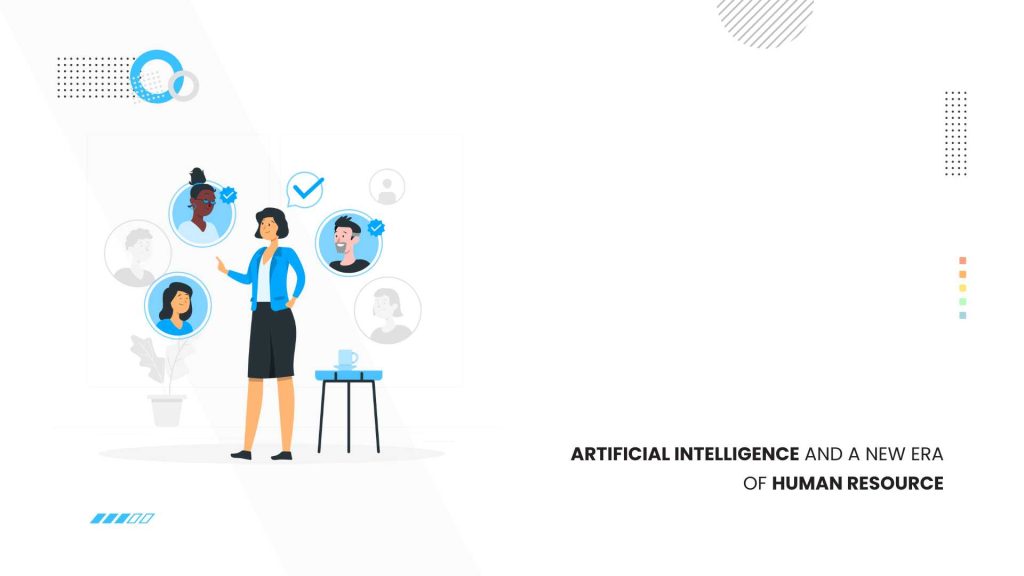The increasing adoption of AI in HR operations is revolutionizing the way companies oversee their workforce. AI-powered tools are simplifying processes, improving decision-making, and offering comprehensive insights into employee performance and morale, impacting areas from recruitment to employee engagement. As businesses seek greater agility and competitiveness, the incorporation of AI in HR enhances efficiency and transforms conventional human resource roles.
This transformation holds the promise of unlocking heightened productivity and innovation, establishing AI as a pivotal component in the progression of HR practices. We delve into the deep impact of AI on HR and its primary applications in HR management.
Increased Employee Retention
Organizations prioritize retaining employees, recognizing AI as a key asset. Through predictive analytics and sentiment analysis, AI discerns factors influencing turnover, enabling HR professionals to preemptively tackle issues. This understanding of employee sentiments empowers organizations to customize retention approaches, nurturing a committed and engaged workforce.
Cognitive Decision-Making
AI augments HR decision-making processes by analyzing vast amounts of data to uncover insights that may not be apparent to human professionals. With AI-powered algorithms, HR managers can make data-driven decisions regarding recruitment, performance management, and talent development.
By leveraging AI’s cognitive capabilities, organizations can mitigate biases and ensure fair and objective decision-making, leading to better outcomes for both employees and the business.
More Efficient and Effective Employee Training
Traditional training techniques frequently fail to meet the diverse learning needs of employees. AI-powered personalized learning platforms overcome this by delivering customized training programs based on individual preferences, learning styles, and skill gaps.
Using adaptive learning algorithms, these platforms continuously assess employee progress and adjust content to ensure maximum effectiveness, enhancing skills and boosting overall productivity and performance.
Faster Employee Onboarding
AI streamlines onboarding, making it seamless and personalized for new hires. NLP-powered chatbots guide employees, offering instant support and answers to common questions.
AI also automates tasks like document verification and compliance training, freeing HR professionals to focus on more strategic aspects. By delivering a positive and engaging onboarding experience, organizations can accelerate employee integration and improve retention rates.
Automating Time-Consuming Administrative Tasks:
HR departments often face repetitive and time-consuming administrative tasks like payroll processing, benefits management, and scheduling. AI-driven automation tools streamline these processes, reducing manual effort and minimizing errors.
Robotic Process Automation (RPA) systems handle routine tasks such as data entry and document processing quickly and accurately, allowing HR professionals to focus on value-added activities like employee engagement and talent development.
Better Talent Acquisition
AI revolutionizes the recruitment process by enabling HR teams to identify and attract top talent more efficiently. AI-powered applicant tracking systems (ATS) analyze resumes, assess candidate fit, and even conduct initial interviews, saving valuable time and resources.
Through predictive analytics, AI can also forecast future hiring needs and recommend strategies to attract and retain key talent. By leveraging AI in talent acquisition, organizations gain a competitive edge in the race for talent and build high-performing teams.
Core Uses for AI in HR Management:
Learning and Development: AI-powered personalized learning platforms deliver tailored training programs to employees, enhancing their skills and performance.
Executive Compensation: AI algorithms analyze market data and employee performance metrics to determine fair and competitive executive compensation packages.
Onboarding: AI-driven chatbots guide new hires through the onboarding process, providing support and information 24/7.
Career Management and Talent Mobility: AI tools assess employee skills and career aspirations, facilitating talent development and internal mobility.
Talent Acquisition: AI-powered applicant tracking systems streamline the recruitment process, from resume screening to candidate selection.
HR Technology and Operations: AI automates administrative tasks and optimizes HR processes, improving efficiency and accuracy.
Conclusion
Acumatica ERP provides a thorough HR solution that optimizes processes and boosts efficiency at all levels. Through its unified platform, Acumatica allows HR professionals to seamlessly oversee recruitment, onboarding, performance evaluation, and payroll. By consolidating data and automating daily tasks, Acumatica enables HR teams to concentrate on strategic endeavors and employee engagement, ultimately propelling organizational growth and achievement.

Vijay comes with a vast experience in ERP and enterprise solutions space with about 20 years of experience in various packaged application like Acumatica, SAP, Orion, Salesforce.com, SugarCRM and, SalesLogix.

